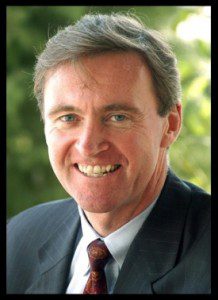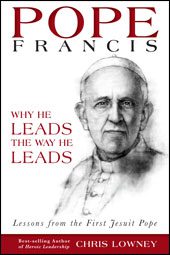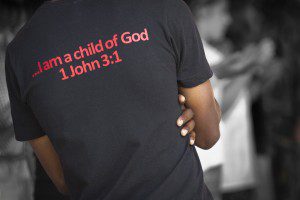 Former Jesuit turned J.P. Morgan Managing Director and best-selling author of Heroic Leadership Chris Lowney is the perfect person to pen a book on the new Pope’s leadership style. In Pope Francis: Why He Leads the Way He Leads, Lowney explores how the Pope’s words and deeds reveal spiritual principles that have prepared him to lead the Church and influence our rapidly changing world. As he shares lessons from this first Jesuit Pope, Lowney in turn encourages and inspires leaders of all shades and stripes to envision and embody a sorely-needed new kind of leadership for our world.
Former Jesuit turned J.P. Morgan Managing Director and best-selling author of Heroic Leadership Chris Lowney is the perfect person to pen a book on the new Pope’s leadership style. In Pope Francis: Why He Leads the Way He Leads, Lowney explores how the Pope’s words and deeds reveal spiritual principles that have prepared him to lead the Church and influence our rapidly changing world. As he shares lessons from this first Jesuit Pope, Lowney in turn encourages and inspires leaders of all shades and stripes to envision and embody a sorely-needed new kind of leadership for our world.
 What inspired you to write a book on Pope Francis’s leadership style? And who did you write it for?
What inspired you to write a book on Pope Francis’s leadership style? And who did you write it for?
My first book, Heroic Leadership, drew “lessons learned” from the early Jesuits to depict some qualities of great leaders: they are self-aware, heroic, ingenious, and loving. When the new Pope was elected—a Jesuit—the publisher asked if I would consider writing something about him. Like everyone else in the world, I was galvanized by those incredible first 48 hours—asking us to bless him, hopping the bus, paying his own hotel bill, etc. And so I was intrigued by the chance to look at him as a “leadership case study,” so to speak. It’s not a conventional bio: plenty of those have been written about him already.
Who is it written for? People who are interested in this Pope and want to understand better how he thinks, what prepared him to lead, what his values and priorities are, where and how he might lead the Church—-and, importantly, people who don’t only want to learn about the Pope but who also want to reflect on their own lives and their own practices.
I was lucky enough to communicate with a number of Jesuits who lived and worked with him, and I was grateful for those privileged “behind the scenes” snapshots and to be able to share them with readers.
Let’s start with the subtitle of your book, “Lessons From the First Jesuit Pope.” So right away, we know this Pope is going to lead differently, given his Jesuit background? What is distinctive about a Jesuit pope when it comes to leadership?
Well, at the most basic level: no one would write a book about President Eisenhower without trying to understand how and whether his military career influenced his worldview and leadership style. Same thing here: the Pope was formed and lived in a very strong culture—Jesuit life. That brings along ways of thinking about the world, approaching the world, and so on.
I’ll only mention one such trait for starters: I call it a “frontier spirit.” Throughout their history, Jesuits have always worked at frontiers. The founder, Ignatius of Loyola, told them they had to learn to “live with one foot raised.” And most Jesuits take a special vow to be available to go on any mission the pope sends them. In their early centuries, the frontiers were geographic: Jesuits tried to engage cultures that were not well known to Europeans.
Now, of course, the “frontiers” of our society are not geographic: they are, instead, the people who are overlooked, excluded, marginalized. You see how often this Pope is telling his church not to get stuck inside itself but to go out into the world, engage the poor especially, but more generally to engage all communities who might find themselves a bit excluded.
That restless, energetic, world-engaged, adventurous spirit is something I very heavily associate with Jesuit culture, so it would only be natural that this might also impact this Pope’s way of thinking about and engaging the world.
You also say a Jesuit Pope is a paradox. What do you mean by that? Are Jesuits not called to lead?
Yes, they are certainly called to lead, but typically not hierarchically. That is, each person has a leadership opportunity and responsibility, regardless of their status and position in a hierarchy. That may sound like feel-good gibberish, but look in the dictionary: one definition of leadership is “to point out a way, direction, or goal; and to influence others toward it.” Well, everyone points out a way, by virtue of how they work and what they do with their time. And everyone has influence. Think of parents and their children, for example: that’s an ideal case of “pointing a way and having influence.”
As I looked at how Jesuits were and are formed, it seems to me that even though they don’t use the word “leadership” in their documents, they are implicitly instilling this widespread culture of leadership I speak about.
But now: the paradox part. The Jesuit founder, Ignatius, thought that personal ambition was absolutely poisonous to religious orders. So in their rules, their Constitutions, Ignatius says that Jesuits should not seek higher offices in the Church, should turn them down when offered (unless obliged by the Pope to accept them), and should report other Jesuits they suspect of scheming to get higher offices. So, yes, a strong leadership culture in the Jesuits, as I would see it, but not one that is usually manifested in a hierarchical way.
By the way: remember I mentioned earlier how I saw the Pope’s Jesuit culture coming through in the way he behaves? Personal ambition would be another example of that: you see him constantly railing against careerism in the clergy: he called careerism and ambition among clerics a “leprosy.” Strong words!
You say this book is as much about the rest of us as it is about the global leader of the Catholic Church. In what way?
Let me give a brief answer here, since I’ve answered earlier questions at length: as what I’ve said above makes clear, my viewpoint is that each person has some leadership opportunity, small or large. And, in a complex, fast-changing world, you really need people at all levels to be able to contribute to leadership. So, I wasn’t interested in writing a book that would only be about the Pope, a sort of: “oh, he’s way up there and I’m way down here” kind of book. I was only interested in writing something—and the publisher agreed to this–if I could use the Pope as a springboard to invite readers to reflect on leadership generally, and in their own lives.
What are some of the most fundamental lessons we can learn from the Pope to re-imagine our own leadership roles?
In the book I outlined six “commitments” or habits, that are core to the new kind of leadership that we need in a chaotic, tumultuous 21st century. I’m not going to go through them all here, but in short, I’m saying that leaders have to reflect deeply on their relationship with self and other people; their relationship with the day-to-day world; and their relationship with past, present, future.
That may sound a bit abstract, so let me give an example of two traits. On the one hand, leaders have to be “in touch,” deeply engaged with the real world, with the joys, sufferings, and challenges of others. Too many so-called leaders are “out of touch”: pampered and cocooned, they deal with the world only through reports, ideology, numbers, television, etc. This doesn’t do. I come from business, and we have too many ivory-tower leaders who never actually engage with the real-life challenges three levels beneath them in the organization.
But, at the very same time—and here comes another trait or commitment—leaders must disengage from the world every day. They need to be fully “in” the world, but not “of” the world, so to speak. They need a habit of daily reflection to take stock of what is going on, lift their horizon to take in the big picture, remind themselves of their ultimate purpose, be grateful, and so on.
Yes, they need to be immersed in the world, but if they spend the whole day merely surfing the tide of emails, texts, calls, and meetings, they will be lost. Therefore, immerse yourself in the world every day, but pull back for a little while every day to reflect.
So I explore each of these six commitments in the life of the Pope, drawing on his Jesuit formation, and then I propose what each commitment might mean for our own lives.
Does this Jesuit Pope have lessons for leaders who are Buddhist or Muslim or Atheist, as well as Catholics?
For sure. My working career was in investment banking. I worked alongside Muslims, Christians, Jews, secular humanists, you name it! I got to see firsthand how people of differing traditions can share values and work toward common goals. So in all my writings, I’ve been mindful of trying to find the intersection points, so to speak. Obviously, Catholics—and I am a practicing Catholic myself—relate to their Pope in a different way than a Muslim or atheist would relate to the Pope.
But my book is not an “us” book exclusively for Catholics. It is trying to reflect on leadership more generally.
To be sure, it delves into the Pope’s Jesuit formation, into the Spiritual Exercises that are core to Jesuit formation, and here and there the book ponders the specific challenges and prospects of the Catholic Church right now. So, without doubt, there is some very specifically Christian or Catholic imagery and ideas, but not in a way that will be strange or off putting to those of differing belief systems.
You’ve built a successful career as a leader within some of the the biggest and most powerful multi-national firms. As you look at Pope Francis, what inspires – or re-inspires you? And what characteristics can you imagine practicing in your own leadership roles?
There are many things that are very winning about this Pope, including his ability to be “comfortable in his own skin.” You get the impression of a simple man who is telling us the truths we need to hear in a very plainspoken way. That’s what “authenticity” really looks like, to cite a word that’s unfortunately gotten so over-used it’s almost clichéd. That genuineness or honesty we see in the Pope is very inspiring and compelling in a person, whether in a Pope, parent, or a boss.
Pope Francis is enjoying extraordinarily high approval ratings thur far into his Papacy. Do you think there will be a Honeymoon phase for the Pope, and if so, does he have the staying power to last beyond it?
Certainly there are some aspects of “honeymoon” to this: I don’t think any human being could live up to the magnitude of ambitious hopes being invested in this Pope right now. But, that said, I also believe he has staying power. People will have their inevitable disappointments as one or another problem does not get solved to their satisfaction, but his credibility and authenticity, which are pretty well grounded by now, will have built up the kind of goodwill that can carry him through those disappointments. In other words, people will be able to distinguish their disappointment on any one or another particular issue from their overall opinion of the Pope.
What do you think we can expect to see in the years ahead under Pope Francis’ leadership? Any more surprises in store? Where will the significant challenges lie? And what will count as ‘success’ in this Pope’s eyes … and the Church’s eyes?
My personal take is that Pope Francis is trying to engineer a massive culture change in the Catholic Church (I doubt he would put it in those words, but that’s how I see it). “Massive culture change” means a completely different approach to how things are done, top to bottom. For example, he wants to see the Church way more identified with the poor, manifesting much more simplicity of lifestyle, not closed in on itself but very engaged with the world, much more “adventurous” in the sense of taking risk on initiatives that might fail rather than being obsessively concerned with narrow initiatives that are well controlled, less “managed” by “headquarters” and more proactive and energetic “in the field.”
Challenges? Culture change is the hardest thing you can do in an organization. All the media reporting is focused on things like what the Pope might do with the Vatican bank or reforming the infrastructure of the Vatican curia, its headquarters. But to me, the real “action” of what he is after is in the culture, and that is harder to change.
The Vatican bank, for example, can be restructured by executive fiat and the restructuring implemented by a small group of smart people. But getting 2000-plus bishops and 1.2 billion Catholics to start behaving differently, as I outlined above? That is a tall order: behavior and culture change is way more difficult!
What will success look like? The Pope used a great image in a recent interview: the Church should be a “home for all, not a small chapel for a select few,” or words like those; success will be if we feel more like a “home for all” ten years from now!
For more on Pope Francis: Why He Leads the Way He Leads, visit the Patheos Book Club here.













